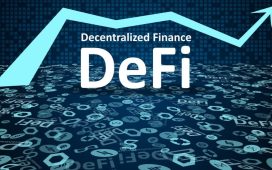Debt is something that many individuals accumulate throughout the course of their life. Some of the debt is more manageable than others, like a mortgage or a car loan. Unfortunately, there are occasions when we have no choice but to incur a high-interest debt, such as a credit card balance or a loan from a money lender. All of these factors have the potential to ensnare us in a debt trap, where we incur more debt than we can reasonably hope to repay.
Still, we must not give up hope. You may avoid falling into debt forever by learning to control your spending habits. We’ve put up some guidelines to help you break out of your never-ending debt cycle. So how to get out of debt?
Choose a debt consolidation program
financial consolidation is a powerful tool for those who are struggling under the weight of several financial obligations. This means that you may consolidate your debt by taking out a new, lower-interest Personal Loan to cover many existing obligations. Debt consolidation involves rolling many debts into one manageable payment. Better repayment periods, reduced interest rates, and cheaper EMI payments are all options when you combine your debt.
Don’t take out any further loans with exorbitant rates of interest.
There are no exceptions to this rule: once you’ve decided to consolidate your debt, you can’t take out any additional loans. In light of the need to break out of the “debt trap,” it would be detrimental to take on any more debt.
The most expensive debts should be paid off first.
If you don’t want to use a debt consolidation loan and instead want to pay off your debts individually, start by eliminating the loan with the highest interest rate. Finding the most expensive debt is the first step in developing a strategy to pay it off.
Create a budget and stick to it religiously.
Establishing and sticking to a budget is crucial. Do not make any unnecessary financial obligations, no matter how big or little, until your financial position has stabilised. This is a sign that your usage of credit cards has to be reduced.
Increase your monetary output.
By taking up freelance employment, you may increase your income and decrease your debt. If you can pay off your debts faster, you’ll end up with less debt overall.
Reduce any outstanding credit card bills.
It is crucial that you make appropriate use of your credit card; otherwise, you will be liable to excessive interest rates and harsh penalties for late payments since the money you owe on your credit card comes from an unsecured loan. Making your credit card payments late might result in substantially higher interest rates being applied to your balance.
You might move the amount from one credit card to another.
If you have an existing credit card balance, you may be able to transfer that balance to a new credit card with a lower interest rate (often a promotional interest rate). You should pursue this method only if the interest rate difference is substantial and you know you can pay off the debt before the promotional period ends.







